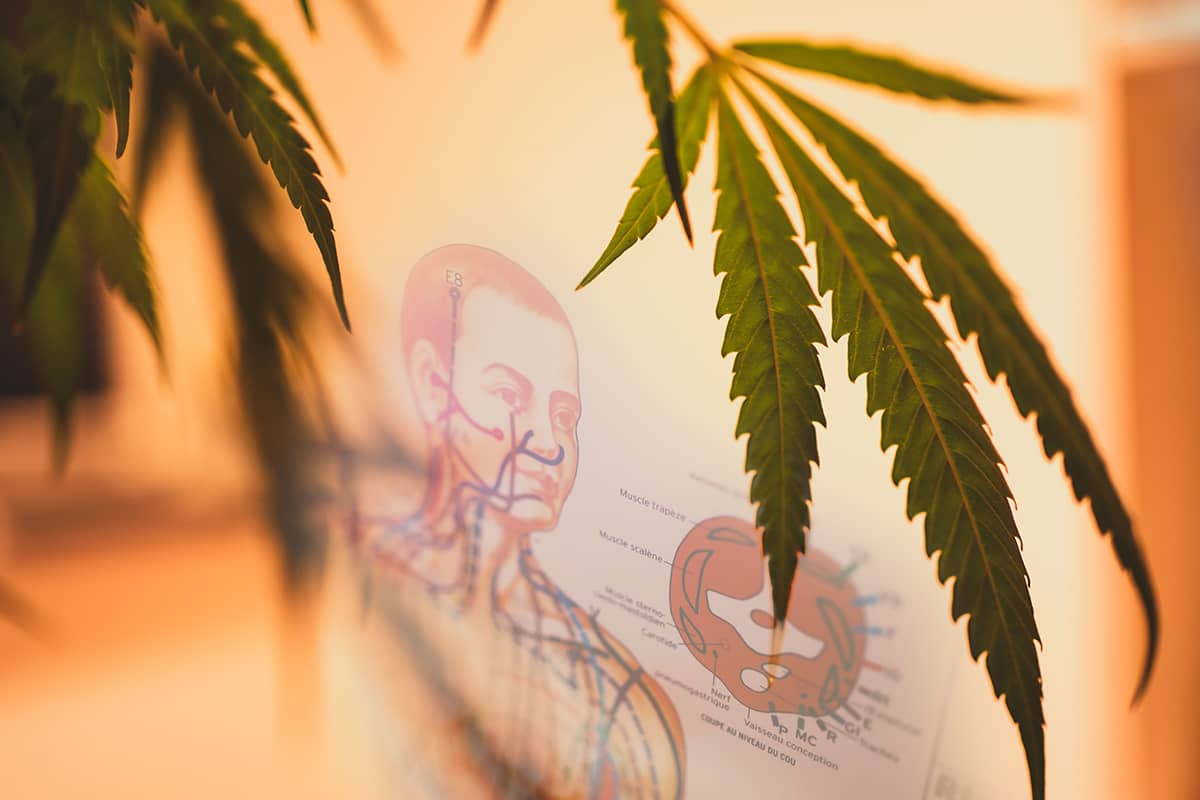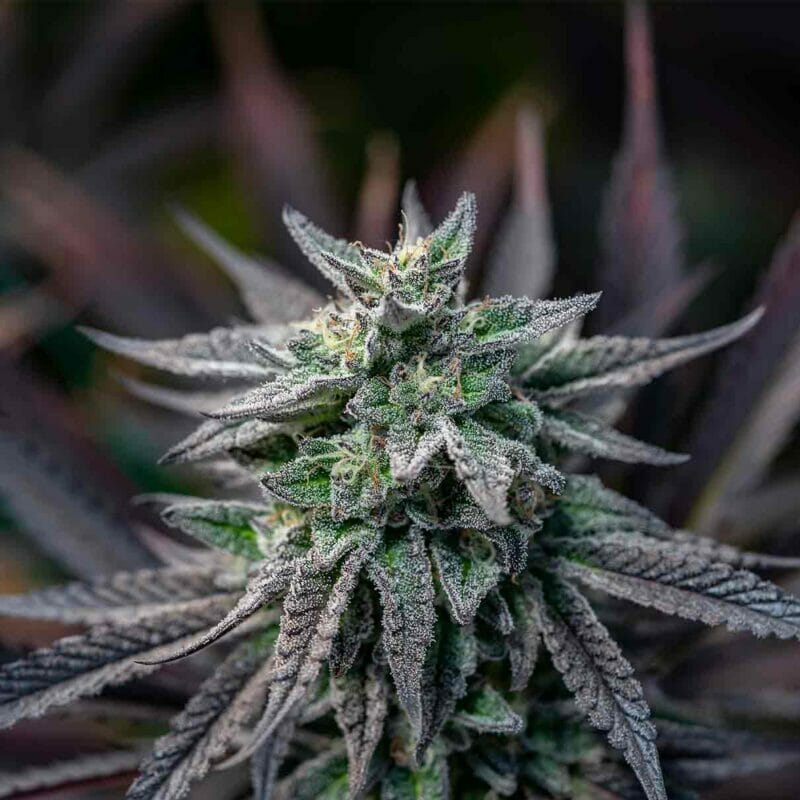In This Article
As public and scientific interest in cannabinoids continues to increase, so too does the mounting body of evidence that suggests that the endocannabinoid system, and indeed cannabinoids, have a huge role to play in our mental and physical wellness.
While CBD continues to increase in popularity, other cannabinoids are also starting to make headlines as research reveals that it’s not just CBD and THC that possess therapeutic properties.
In this article we’ll take a closer look at THCA, explaining the differences and similarities between THCA and CBD, helping you answer questions like:
- What is THCA?
- THCA vs THC Delta-9
- Does THCA make you feel high?
- What is the difference between THCA and CBD?
- What is THCA flower?
- CBD and THCA: Shared therapeutic properties
- What is THCA CBD?
What is THCA?
THCA, short for tetrahydrocannabinol acid, is one of over 113 known Phyto cannabinoids that can be found in raw cannabis and hemp plants.
THCA is naturally produced within the glandular trichomes of cannabis and hemp flower buds and, along with CBDA, is responsible for inducing cellular death (necrosis) within the plant. Necrosis is a vital process needed to keep the plant healthy, by eliminating damaged, dead, or dying cells.
In a way, these acidic compounds act as the plant’s immune system.

THCA vs THC Delta-9
Despite sounding similar, THCA and THC delta-9 are very different compounds and the more we learn about THCA, the more it seems to have more in common with CBD than it does with THC.
This is unlike Delta-8 THC which is quite similar to Delta-9 THC.
THC delta-9, more commonly referred to as simply THC, is one of the most well-known and studied cannabinoids. It has many unique therapeutic benefits and you may know it as the compound that makes the user feel high by binding to CB1 receptors in the brain, but THC wouldn’t exist without its acidic precursor, THCA.
THC’s acid form, THCA, only transforms into THC when it’s exposed to heat, age, or light, through a process called decarboxylation, in which it loses its carboxyl group.
THCA and THC are naturally occurring cannabinoids that can be found in the hemp and cannabis plant. THC-O on the other hand, is a synthetic cannabinoid with strong psychoactive effects. Try our federally compliant Delta 9 gummies here.

Does THCA make you high?
No, THCA in and of itself is a non-intoxicating compound. It doesn’t bind itself directly to CB1 receptors in the central nervous system like Delta-9 THC does and therefore cannot make the user feel high.
However, this is only true if THCA is ingested in its raw state. If you decarboxylate it (or smoke it), the THCA will transform into Delta-9 THC and that in-turn will make you intoxicated provided that the THCA percentage is high enough.
This intoxicating effect is causing some issues in hemp legislation since we now see an increase of THCA flower (flower that is high in THCA) sold as CBD flower. More on that below.

What’s the difference between THCA and CBD?
THCA and CBDA are acidic compounds that are found abundantly in raw hemp and cannabis flowers that convert into THC and CBD respectively, when heated, cured, or aged.
Despite the fact that THCA transforms into THC, it actually has a lot in common with CBD. Early research into THCA suggests that although the way each compound exerts influence on our body is different, the resulting therapeutic benefits are remarkably similar.
Both CBD and THC start out as CBGA or CBGV in the cannabinoid cycle.
What is THCA flower?
THCA flower is a new word for “hemp flower” that is high in the cannabinoid THCA. According to interpretations of the law, THCA flower can legally be sold as CBD flower as long as the total Delta-9 THC is below the limit for hemp flower which is .3% of dry weight.
What makes things complicated is that, when you smoke THCA flower, it turns into THC which makes the smoker feel high. The high is exactly like the high one feels when smoking cannabis. In fact, regular cannabis is often times quite low in Delta-9 THC (around 0.5-1.0%) but very high in THCA (20-30%).
CBD and THCA: Shared therapeutic properties
Unlike THC, neither CBD nor THCA exerts its therapeutic potential by directly binding with cannabinoid receptors in the brain and body. Instead, both of these cannabinoids seem to work by enhancing or inhibiting the release of various neurotransmitters that are responsible for helping our bodies achieve homeostasis.
Research into THCA is more limited than CBD at this point, but early studies have already revealed that THCA may possess anti-inflammatory and neuroprotective properties.
What early research studies say about THCA
1 – Anti-inflammatory properties
Research suggests that CBD and hemp terpenes are great for their anti-inflammatory properties. One of the ways they are able to support inflammation is by binding to TRPV1 receptors and inhibiting an enzyme called COX-2. CBD also acts as a reuptake inhibitor of adenosine, thereby boosting levels of this neurotransmitter, which helps to improve blood flow and oxygen consumption.
Published research on inflammation in colon epithelial cells showed that cannabis sativa extract effectively reduced inflammation. The results suggested that these anti-inflammatory effects were largely due to the presence of THCA and, at least partly mediated by the GPR55 cannabinoid receptors.
Interestingly, the researchers also noted that the cytotoxic activity of THCA was enhanced by the presence of other compounds, providing further evidence that supports the existence of the entourage effect.
2 – Neuroprotective Properties
CBD has also been shown to be an effective neuroprotectant and it’s thought that this is largely due to CBD’s role as a reuptake inhibitor of anandamide, one of our body’s natural endocannabinoids. CBD has a strong affinity with various fatty acid binding proteins that are responsible for breaking down anandamide, resulting in boosted levels of anandamide in the brain, which helps to protect our brain and nervous system from damage.
3 – Antiemetic Properties
A 2020 research paper showed that both THCA and CBDA were effective in reducing nausea in rat models, more effective than THC and CBD even.
THCA in Practice
The potential use and effectiveness of THCA clearly needs a lot more research, but even in these early days this acidic compound is showing great promise.
As research into these “raw” cannabinoids continues, more and more people are adding raw cannabis or hemp into their diets, recognizing it as the amazing superfood it is. You can sprinkle ground up cannabis or hemp onto your food, add a couple of nugs to your morning smoothies, or you can even juice it. Yes, cannabis juicing is now a thing.
Cannabis expert, Dr. Bonni Goldstein, recently told ProjectCBD that she’s seen for herself what daily consumption of THCA can do. She says just 10-20mg per day can effectively reduce pain in a variety of conditions, as well as improve cognitive function.
So what is THCA CBD?
There are vendors of CBD flower who offer high THCA flower with THCA levels of around 20%. When that THCA gets heated and converts to THC, you get a fairly strong buzz that is similar to that of regular cannabis. Legal changes are happening throughout the nation however, that are making these THCA rich strains regulated (and many times illegal) so ordering online should be done with caution.
The D8 THC craze that took place in 2021 made legislators revisit the 2018 farm bill that first made hemp federally legal. The wording in the farm bill was not specific regarding different variations of THC and led to conclusions that only Delta 9 THC needs be be below .3%. Now some states are enforcing a .3% total THC limit which would make THCA flower more difficult to come by.


